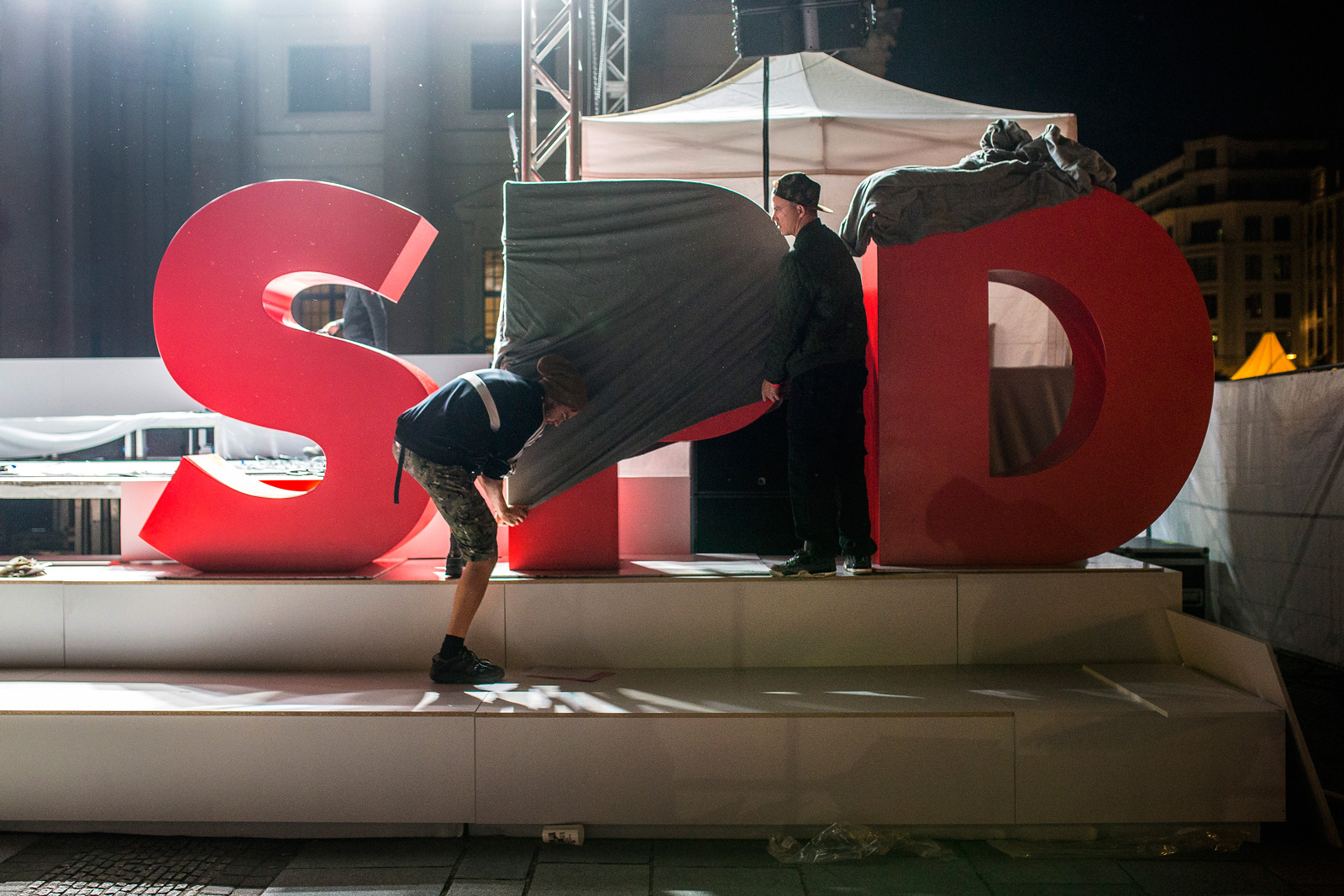In Germany’s parliamentary elections over the weekend, Angela Merkel was elected to a fourth term as chancellor, fulfilling the predictions of most pundits and pollsters. The election was not without surprise, however. Germany’s far-right Alternative für Deutschland (AfD) party received 12.6 percent of the vote, becoming the first far-right party to enter the Bundestag in generations. At the NY Review Daily, Madeleine Schwartz suggests that this troubling victory was partly enabled by Germany’s governing center-right and center-left parties; during the campaign, they offered no compelling vision for how to integrate refugees and migrants into German society, barely even addressing the issue at all. This opened the door open for AfD to completely dominate the migration crisis as a campaign issue. Read an excerpt from Schwartz’s piece below:
The apparent calm of the election belied the real concerns of the German public, concerns evident in the election results. Merkel began her campaign late and then barely campaigned; she gave plain speeches that rarely mentioned her opponents. To the eyes of the public, the two major parties seemed nearly identical. This provided the AfD with an opening to be the opposition. If people turned to a party that said the unspeakable, it was partly because very speakable things weren’t being said at all …
In the absence of debate, the AfD’s xenophobic nationalism set the agenda for every other party. Christian Lindner, the head of the libertarian FDP, which has reentered the Bundestag with 10 percent of the vote after failing to meet the 5 percent threshold in 2013, gave an interview to the right-wing tabloid Bild that was headlined “All refugees must go back!”
When the AfD hired an American company, Harris Media, to run the party’s final advertising push, the consultants were criticized for suggesting the slogan “Germany for Germans.” Yet it was a member of Merkel’s own cabinet, Thomas de Maizière, who in April published an article in Bild that attempt to define German culture in anti-immigrant terms: “We are not Burka…. Our country is molded by Christianity.”
Image: Stage crew covering the Social Democratic Party of Germany (SPD) logo after a campaign event, Gendarmenmarkt Square, Berlin, September 22, 2017. Via NY Review Daily.
